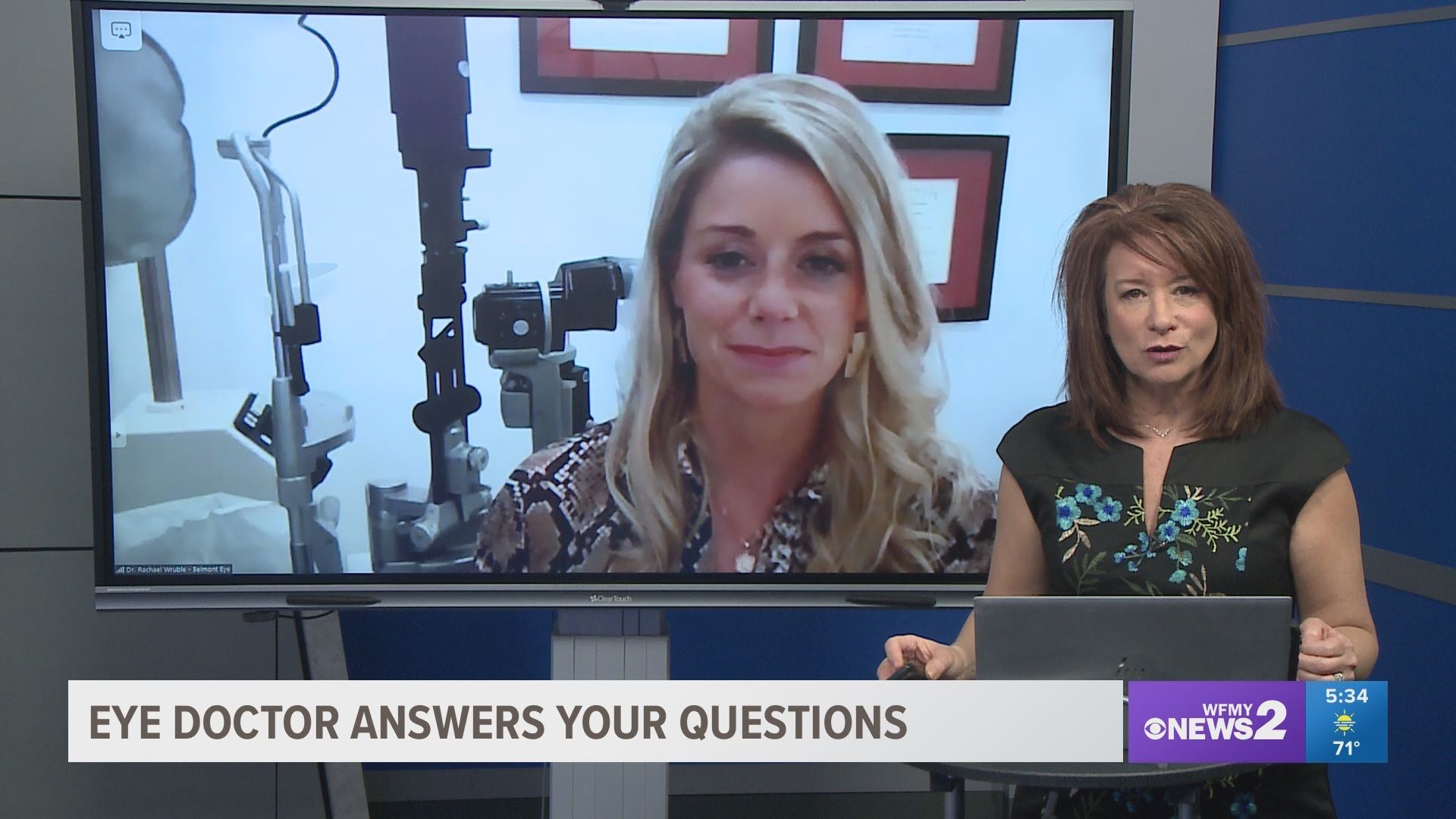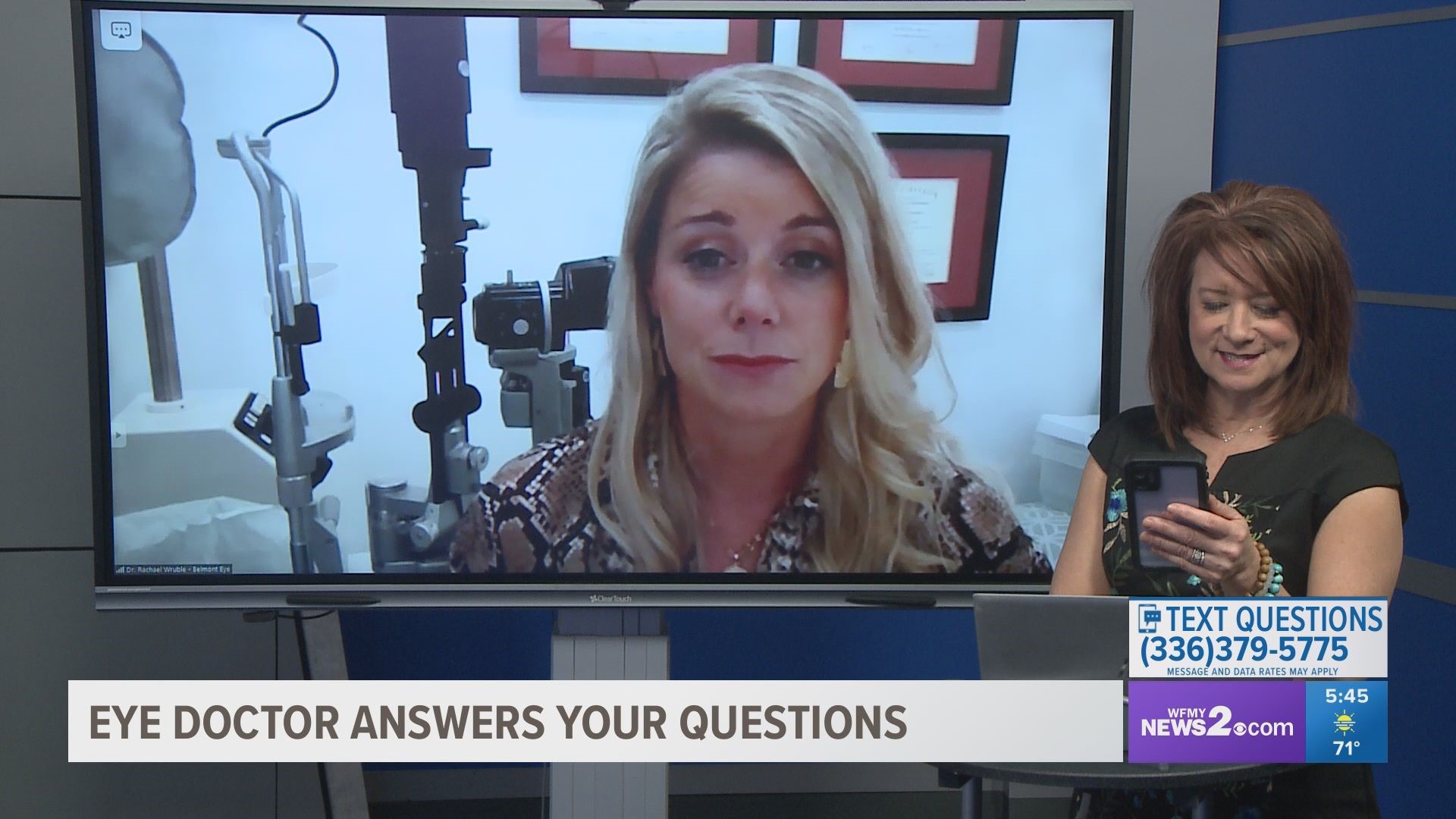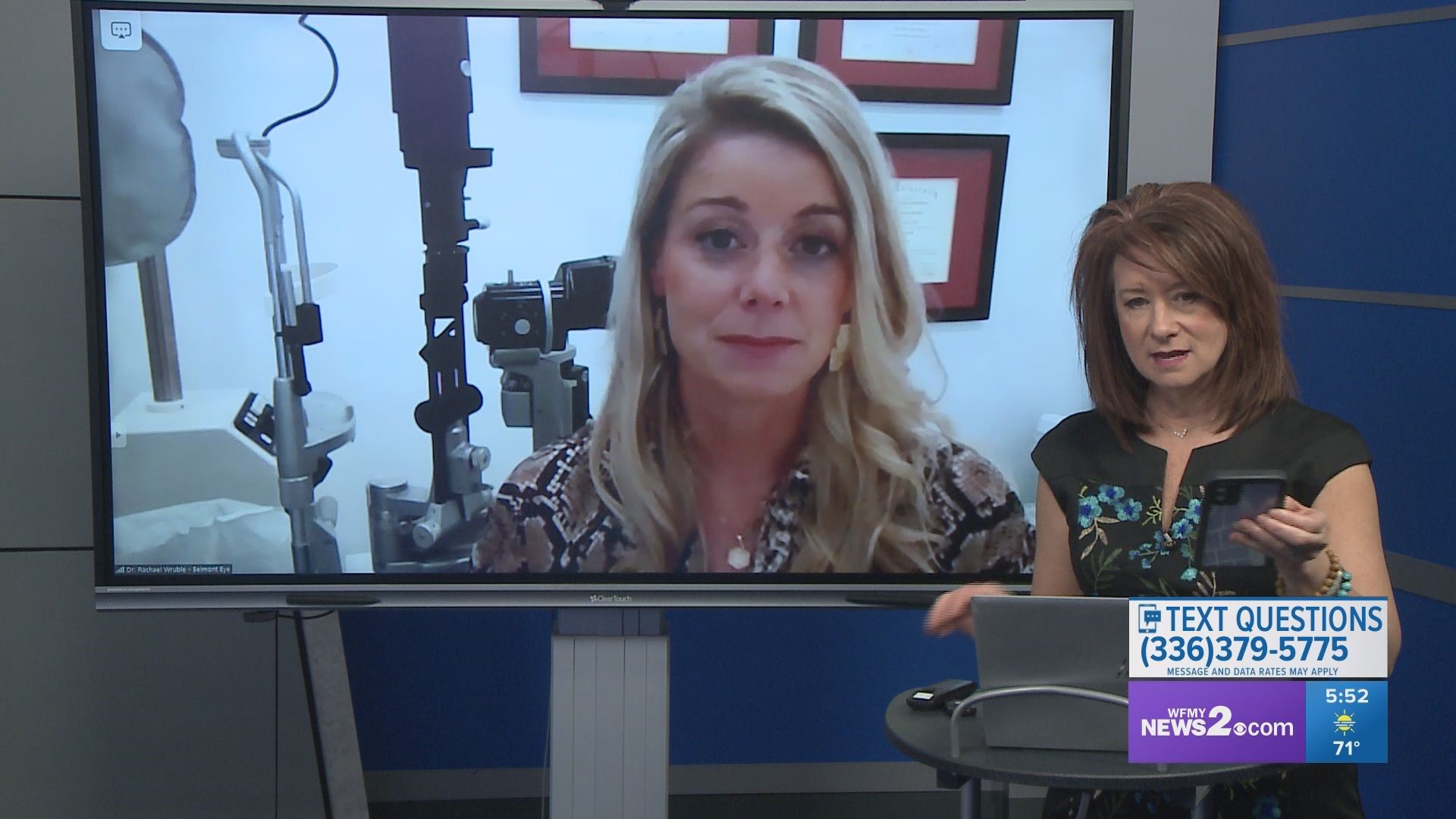GREENSBORO, N.C. — Many people suffer from itchy, red eyes during spring with pollen all over the place. The allergies can become a big problem for some of us.
We spoke with Dr. Rachel Wruble from the North Carolina Optometric Society to help find some relief and get other eye questions answered.
Allergy Season
Wruble shared some tricks that can help alleviate your symptoms.
- Wear wrapped, polarized sunglasses outside that completely cover your eyes.
- Stay indoors on dry, windy days. She said the best time to go out is after a good rain because it helps clear pollen from the air.
- Delegate lawn moving, weed pulling and other gardening tasks that stir up allergens.
- Take off clothes you wore outside and shower. It rinses the pollen from your skin and hair.
- Don't hang your laundry outside. Pollen can stick to clothes and towels.
- Wruble said you should close all doors and windows at night or any other time that the pollen count is high.
In some cases, your eye doctor may prescribe eye drops that help treat your symptoms.
Bear Eyes
Bear eyes is a condition where someone gets pigmented lesions on their retina. Wruble said people with it are most likely to have familial adenomatous polyposis (FAP).
FAP is an inherited disorder characterized by colon and rectum cancer.
Wruble said patients with bear eyes get taught about colon health care since FAP is so common among them. She said a 2010 study from the American Journal of Gastroenterology found patients with the condition should get a colonoscopy.
Wruble said eye conditions like bear eyes can sometimes be indicator of something more serious going on with the body, so everyone should get their eye exams.
Vuity
Wruble said there's an eye drop for presbyopia, which is age-related blurry near vision.
The drop, Vuity, is the first and only FDA-approved prescription that corrects near and intermediate vision. Patients get one dose daily, and it last six hours.
Wruble said presbyopia affects nearly 128 million Americans, which is about half of the United States' adult population. She said it normally starts around 40.



